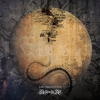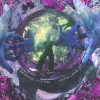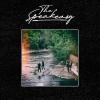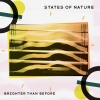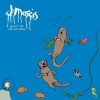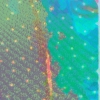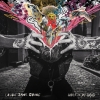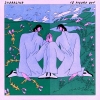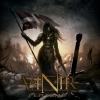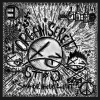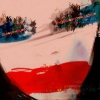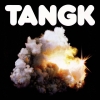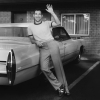author AP
date 02/07/12
Mastodon have seen a steady rise to becoming one of the world's biggest and most respected metal contemporary metal bands, and despite the fact that this is the fourth time in less than a year that the band visits Denmark, we'd yet to grab the opportunity to interview the band. This has now been fixed, as we sat down with the band's drummer Brann Dailor to ask him about the band's success, the new album, and the tragedies that influenced its creation. Read all about it in the transcript below.
RF.net: Why don't we start with introducing yourself, and maybe one interesting or funny fact about yourself that nobody, or very few people know.
Brann: My name is Brann Dailor, and I have a birthmark in the shape of Abraham Lincoln on my right ass cheek.
RF.net: Since this is the first time that we have had the opportunity to sit down with you, I'd like to start from the beginning. How, where and when does the story of Mastodon begin?
Brann: It's pretty simple. I've been playing in a band with Bill since 1993 up in Rochester, New York. We were kind of chipping away at it up there, playing locally and regionally, and then joined a band called Today Is The Day. We were in that band for a couple of years before we decided to move down to Atlanta and start our own band. So that's what we did, we went down there and met Brent and Troy, who had been playing together for about the same amount of time in Atlanta. We joined forces, started a new band, got in a van in the year 2000, and haven't really looked back.
RF.net: Safe to say, it's been an absolutely mindblowing past few years for you, having grown from an underground sensation to headlining some of the biggest venues and festivals in the world. Has the success you've enjoyed lately come as a surprise?
Brann: Yeah, I'm surprised that anyone likes our band, you know? I mean, I know I like it, but... It wasn't like "whoa", but I guess when we found out we were playing the Orange Stage at Roskilde Festival, I think all of us were a little intimidated by that. It was like "Wow, why? Wow, This is going to be a tough hour and a half if everyone out in the audience is just kind of looking at us". But it was a really great show - for us anyways. We could see the audience was enjoying themselves, so that was good. It's all been pretty slow but sure, you know? Like, we come back, and there's a little bit more people, and a little bit more people. So there hasn't been any kind of overnight sensation. Twelve years of touring as a band has been sort of slow build, but I think we just take it in stride, and it doesn't really affect us in a negative way. We're definitely surprised by it, usually.
RF.net: At Roskilde you were actually billed as a headliner alongside bands like Arctic Monkeys, Iron Maiden and The Strokes, which was pretty surprising to most people here in Denmark. Were you taken aback at all when you saw your name written in huge letters in a spot that, the year before for instance, was occupied by the likes of Prince?
Brann: I was surprised, too. I didn't realize Prince's name had been on there, but I realized it was the same kind of spot. It was a big deal, it was huge. We've got that poster hanging up in our practice space. It was a real honor. I love that festival, it's probably one of my favorites. That one, and Rock Werchter. There's a couple that are long-standing and very prestigious, and Roskilde is one of the best.
RF.net: I don't know if they told you this, but the Orange Stage is actually a scaled up replica of the original canopy used by the Rolling Stones, which was then acquired by Roskilde Festival in 1978 and made the symbol of the festival, and bands that perform on it tend to agree that there is a kind of magic associated with performing on it. How was the experience for you?
Brann: We knew the gravity of it. It was definitely a special gig, and we took it to heart. It wasn't just another gig for us, so we rolled out and did the best we could.
RF.net: Some people, including myself, feel that just as the 80s and 90s brought about the concept of the Big Four of heavy metal, so too should the naughties. And looking at various forums and discussions on the Internet, most people seem to agree that Mastodon should be one of them, alongside Machine Head and Lamb of God (the fourth slot is still quite contested). How do you feel about that idea? Do you agree?
Brann: I don't know. I don't really think about it too much. But Lamb of God are pretty big. If you try to think about bands that are not classic metal bands, that are newer bands that have come out over the recent years, Lamb of God is definitely one of the biggest metal bands out there. I guess we are, too, but I don't really think about it too much.
RF.net: Word has it that the sudden increase in your popularity, and the extensive touring that came with it, took quite a toll on the band on a personal level and drove you into some difficulties just prior to recording "The Hunter". Could you elaborate a bit on what happened?
Brann: Oh, it wasn't because of touring or anything. It was just personal tragedies for certain band members that happened. It affected the sound. In the past when we approached writing a record, everything was fine with everyone's lives, so it was okay to be in that room and get a little stressed out trying to figure out these puzzling parts and riffs and things like that, trying to put them together, and maybe leave frustrated, or be frustrated inside the room at some point. It was okay, you know? But this time it wasn't okay because there were other things happening. So we sort of had to be satisfied with a simpler version of ourselves. In the past if we came up with a riff, like the riff in "Curl of the Burl", we would have worked to make it harder for us to play it, and harder for people to like it. That was our goal. Instead of doing that, and going through all that with each other, we had to be more like "That's fine. Works for me. Sounds awesome!", you know? I don't think the record suffered from it at all - it's just a different thing.
RF.net:Unlike your previous albums, "The Hunter" does not follow a specific story. What were you reasons for not centering it around a concept this time?
Brann: Because we've done that so many times. We've taken the concept album as far as we can, I think. I had a big lofty concept for this one, but it seemed very tired. I mean, the concept was cool, and it was far out and crazy and wacky and all that stuff. It still exists as a story, on its own. But we didn't really want to paint ourselves into a corner and have people assume that that's what we're going to do from now on until the end of the band, so we decided to change everything. We changed the artist, too. We needed a fresh start after twelve years, or ten years, or however long it had been at that time. It was apparent that everybody needed to hit refresh on the band.
I think we maintained our sound because we are who we are, and we can't really change who we are as musicians so to speak, one hundred percent. Our thing, I think, is original enough that when the four of us put stuff together, you can tell that it's us. But the subject matter - that was pretty freeing, because there was always subjects that I wanted to write about but couldn't because I had come up with this whole story, so it was like there were certain parameters that we were allowed to write in. There were different things that you could maybe shoehorn into it, but it had to conform to the story. This one was just more fun, because you could put in whatever you wanted: sex in space, or meth-heads in the woods, chopping down trees. It was very free, you know?
RF.net: The album also sees somewhat of a return to the shorter and more immediate approach of pre-"Crack the Skye" era material. Was this also a conscious decision?
Brann: Not necessarily. But I'd say that in the practice space we questioned ourselves because we were used to writing songs that were 13 or 14 minute song. At some point a song is what it is - it's done, and we can't sit there and beat each other up, and add on and add on and add on and make this long, drawn out thing. Not to say that we won't ever do that again. But I think that after two years of touring "Crack the Skye" and playing it in its entirety, we wanted to do something different.
RF.net: Is it challenging to play those songs from "Crack the Skye" live, in terms of practicing for the tour and so on?
Brann: Oh yeah, it's really challenging. I mean it's not like it's too hard, but...
RF.net: I'm only asking because I've read that Thomas Haake from Meshuggah once said that just to get that one song, "Bleed", right, he has to spend about two months practicing it.
Brann: I don't have anything that challenging, I don't think. I really just want to have fun up there, so I try to find a balance between technically pleasing myself and letting loose and having it be easy. It's okay if it's easy. Even myself, having been involved in technical metal for so long - ever since the early 90s - I beat myself up if something's too simple. I feel like I have to make it harder somehow because I'm not challenging myself with it. And then another voice comes in and says "It's okay, it's fine the way it is, you have nothing to prove here." And that part is going to be better, it's going to have more impact for people if you just lay back.
RF.net: Was the recording process behind "The Hunter" quite different than what you're used to then?
Brann: No, it was the same. It's just that I got the drum sound that I had always wanted for this album. You learn over time, after recording a few times, to stand up for yourself. I've always been the guy that said "no, it's okay, whatever", and this time I really learned to, not stand up for myself, but speak my mind and say "no, I want this for my drums. It needs to be like this!". Otherwise you're not going to be happy in the long run, and whoever the guy is that records it is just going to move on, and you're left with this thing that's not whole-heartedly what you wanted.
RF.net: Did you feel that way about any of the other albums?
Brann: Sort of. I felt like I compromised on the drum sounds on some of the other albums. I won't say which ones, but... I've always wanted this Phil Collins kind of big tom sound - never been able to get it, but this time I did. So I'm excited about that. With regard to the recording process, I just work as hard as I can in there, and just do take after take after take until I get it right. And I feel like I got all the fills that I wanted to accomplish in the songs, and I feel like I made all the transitions happen in the way they were supposed to - not that clinical, because I wanted to make sure that I played the songs with the feel and the groove that needs to be there. But it's always been like that, it's always pretty much the same.
RF.net: Just like "Crack the Skye", which was dedicated to your sister, who sadly left this world too young, "The Hunter" too is dedicated to Brett's brother who passed away during a hunting trip. And as if part of some morbid ploy, your accountant's wife Susie Polay succumbed to cancer durings its recording. How did these tragedies influence the moods and atmospheres present on the album?
Brann: Well, I wasn't sure how it was going to affect things. Not so much Susie Polay, because that happened during the final tracking, and we went to her funeral, and that's where we kind of took the lyrics and did that as a tribute to her life in that song, because Robert was a good friend of ours, and Susie was a good friend as well.
With Brent... I mean, I'd been through it, so I knew it was a really fragile time. When something like that happens, it fucks you up pretty good, and you don't know what to expect from yourself even for a while afterwards. So you don't really know how you're going to handle it. It's kind of a day-to-day thing, so you could feel fine for a week, and then have a bad week. So I didn't know what to expect, but I knew it would probably be better to keep him busy, as busy as he wanted to be, so I'd call him every day and tell him I was going to the space and if he wanted to join me, that was up to him. I kept it as light as I could so it didn't get all heavy over there. It's a fragile time, so you don't want to disturb that and cause the other person to have a breakdown because you don't know what's going to happen after that. So it was like (humming the main riff from "Curl of the Burl")... it was fun, you know what I mean? It lifted people's spirits, and the same with "Octopus Has No Friends". It was like we didn't give a fuck about what was going on. In this room, and with this music, we were going to overcome all that bullshit and write a kickass record, and kind of use that as therapy for what everyone was going through.
RF.net: So what are your favorite songs off "The Hunter"?
Brann: I don't know. I love "The Creature Lives" because it was a surprise. It was weird song that came together somehow. I like everything. "The Sparrow" was another surprise - I didn't expect that one to happen. We tracked it on the last day, because we couldn't find the middle riff from it when we were going through this harddrive of stuff that we'd recorded in our practice space, scouring the harddrive for this one riff. We knew there was a part that was perfect, we were jamming it the other day, and we couldn't fucking find it or remember it. But we finally found it and laid it down. "Black Tongue" is another one. They're all good for me.
RF.net: When it comes to live performances, you are renowned for rarely addressing the audience, playing long sets, and entering and leaving the stage without much fanfare. With any other band it would surely seem arrogant, but with Mastodon it somehow feels right. Do you do, or rather, not do these things deliberately?
Brann: Pretty much. We sort of learned that from Neurosis, I guess, because that's like a page out of the Neurosis book, to just get in the zone and play the music, and put as much music into the show as possible. Because if we start talking, we might have to take a song out. I'd rather have a song be there, and then at the end say, "Thank you so much! Goodnight!". What's there to say, really? Not that I feel like it's corny, but sometimes it's a little weird and silly to say those things. Every band does it. I think people kind of expect us to, and then we don't. Part of me feels like it might be a little alienating, but it's up to the guys upfront. I'd be like "Hey, maybe say hi?", and they'd be like "No!".
RF.net: Before we wrap this up, I'd like to know what your plans for the immediate future are? Is there another album in the works already?
Brann: Of course. Or I don't know. Not really. I've got a few ideas for overall themes - I don't know if we'll go for a full-on concept again, but there are ways to have a theme and not have a concept, you know? We don't have that much more touring left; we've only got a couple of weeks left over here, and it's been about 9 months solid for us. So we're looking forward to getting back home and spending time with our families, and getting to know those people again. We've been gone so long that I hope my dog doesn't bite me when I come.
RF.net: Thank you so much for agreeing to do this interview with us. If you have any comments or famous last words you'd like to conclude this interview with, shoot!
Brann: If you're happy and you know it, clap your hands!
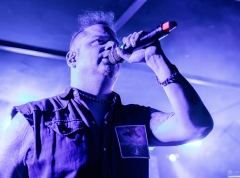
 Twitter
Twitter Facebook
Facebook